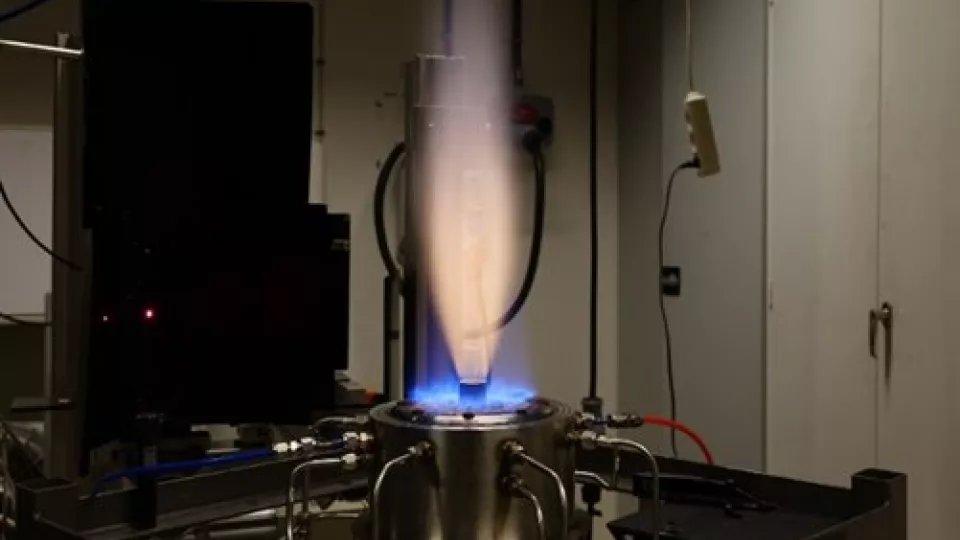Combustion of hydrogen (H2) can provide energy without net carbon dioxide emissions contributing to global warming. However, hydrogen is very flammable, making handling, storage and distribution challenging regarding safety and efficiency. Ammonia (NH3) offers one way to avoid these problems, as it is a liquid that can be easily transported and stored safely. While it is possible to convert NH3 into H2 before combustion, NH3 can also directly act as a fuel.
The challenges with NH3 as a fuel are a slow combustion and strong formation of nitric oxide pollutants. Achieving stable NH3 combustion with low emission levels requires knowledge of the chemical processes, obtained from experiments combined with numerical modeling.
We use laser-based diagnostic methods to measure species concentrations in ammonia combustion and gain detailed knowledge of the chemistry. This supports the development of computational models that can be used in simulations of real-life systems to investigate optimum conditions for NH3 utilization in a sustainable future energy system.
Christian Brackmann - portal.research.lu.se
Arman Subash - portal.research.lu.se
Alexander Konnov - portal.research.lu.se
Joakim Bood - portal.research.lu.se


